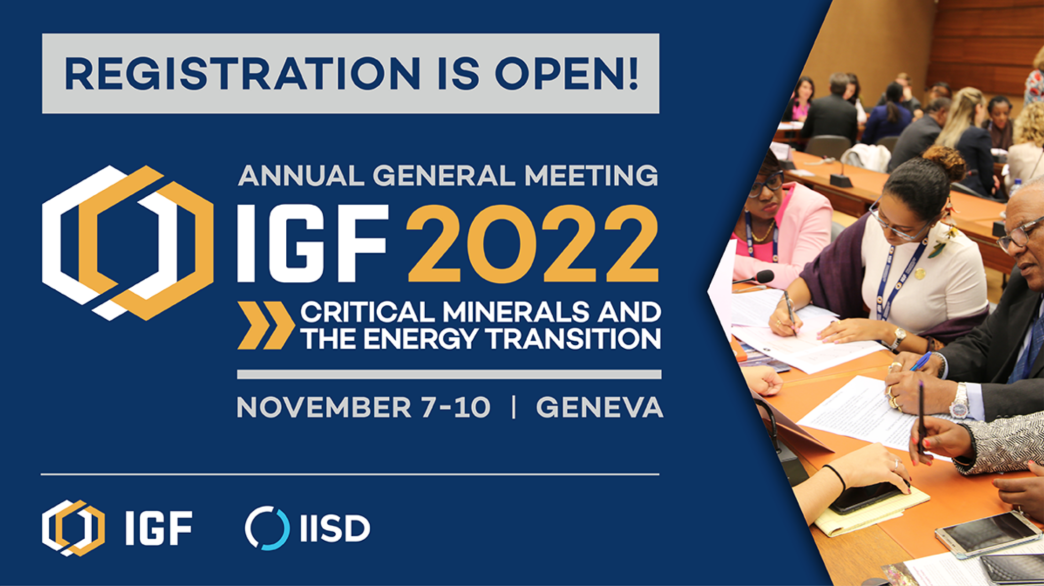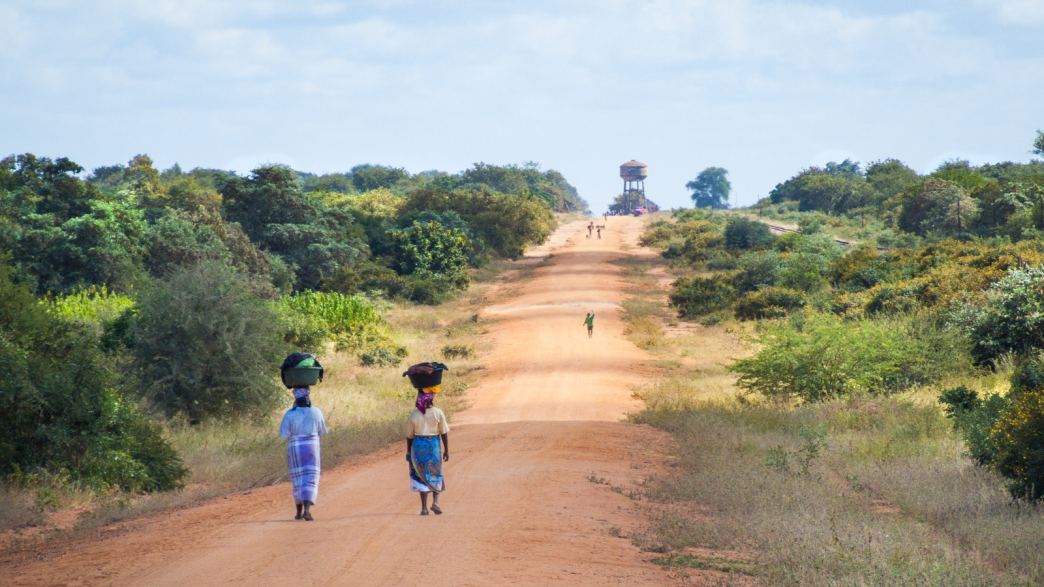
IGF 2022 Annual General Meeting: Critical Minerals and the Energy Transition
7 November–10 November 2022
Format: In-person and online
Location: Palais des Nations
The Intergovernmental Forum on Mining, Minerals, Metals and Sustainable Development (IGF) will convene in-person for its 18th Annual General Meeting (AGM) on 7-10 November 2022 in Geneva, Switzerland. Sessions were also live streamed for virtual attendees.
This year’s event focused on critical minerals for the energy transition and will include sessions on important sub-themes with speakers from various governments and other organizations, including Natural Resource Governance Institute (NRGI).
AGM Day 1. Session 2: Government Readiness for Modern Policy and Regulatory Frameworks
Tuesday, November 8
11:45 a.m. – 13:00 p.m.
Location: Room XXVI
Speakers included:
AGM Day 3. Session 12: Community Resilience in a Just Transition
Thursday, November 10
16:45 – 17:50 p.m.
Location: Room XXVI
Speakers included:
Moderator: Marina Ruete, LAC coordinator and law advisor, IGF
The event was hosted by United Nations Conference on Trade and Development (UNCTAD). For more information, visit the IGF website.
View the full agenda (English, French, Spanish)
Originally published on the IISD website.
Location: Palais des Nations
The Intergovernmental Forum on Mining, Minerals, Metals and Sustainable Development (IGF) will convene in-person for its 18th Annual General Meeting (AGM) on 7-10 November 2022 in Geneva, Switzerland. Sessions were also live streamed for virtual attendees.
This year’s event focused on critical minerals for the energy transition and will include sessions on important sub-themes with speakers from various governments and other organizations, including Natural Resource Governance Institute (NRGI).
AGM Day 1. Session 2: Government Readiness for Modern Policy and Regulatory Frameworks
Tuesday, November 8
11:45 a.m. – 13:00 p.m.
Location: Room XXVI
Speakers included:
- Abdelaâli Lefdaoui, director, Mines and Hydrocarbons, Ministry of Energy Transition and Sustainable Development, Morocco
- Dione Macedo, general coordinator of Sustainable Development in Mining, Department of Geology, Mining, and Mineral Processing, Ministry of Mines and Energy, Brazil
- David Manley, lead economic analyst – energy transition, NRGI
- Scott Woodard, deputy director, office of energy transformation, Bureau of Energy Resources, Department of State, United States
AGM Day 3. Session 12: Community Resilience in a Just Transition
Thursday, November 10
16:45 – 17:50 p.m.
Location: Room XXVI
Speakers included:
- Noel Alonso Murray, executive director, Directorio Legislativo
- Luke Danielson, president, Sustainable Development Strategies Group
- Shruti Sharma, senior policy advisor, IISD’s Energy Program
- William Davis, senior economic analyst, NRGI
Moderator: Marina Ruete, LAC coordinator and law advisor, IGF
The event was hosted by United Nations Conference on Trade and Development (UNCTAD). For more information, visit the IGF website.
View the full agenda (English, French, Spanish)
Originally published on the IISD website.

